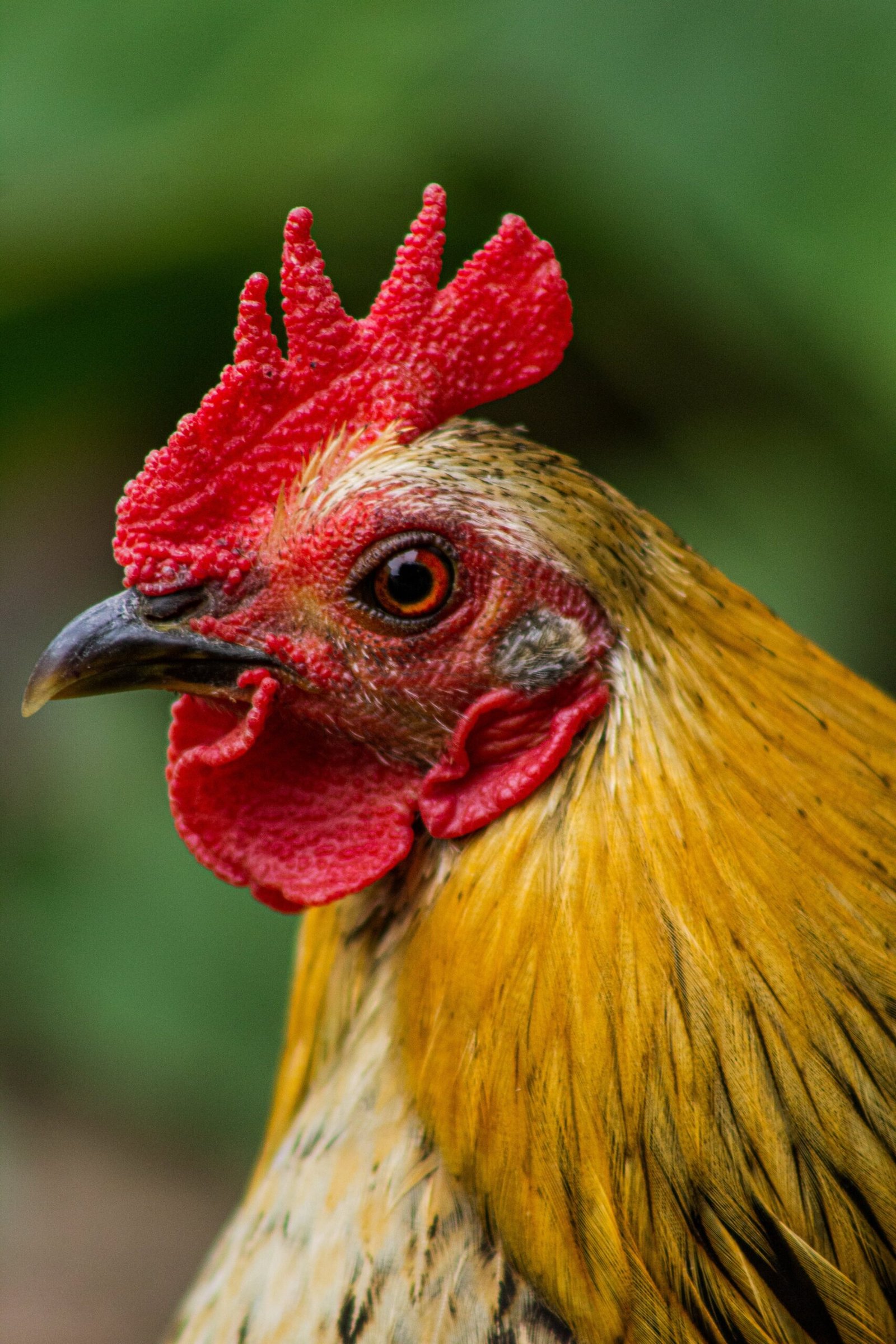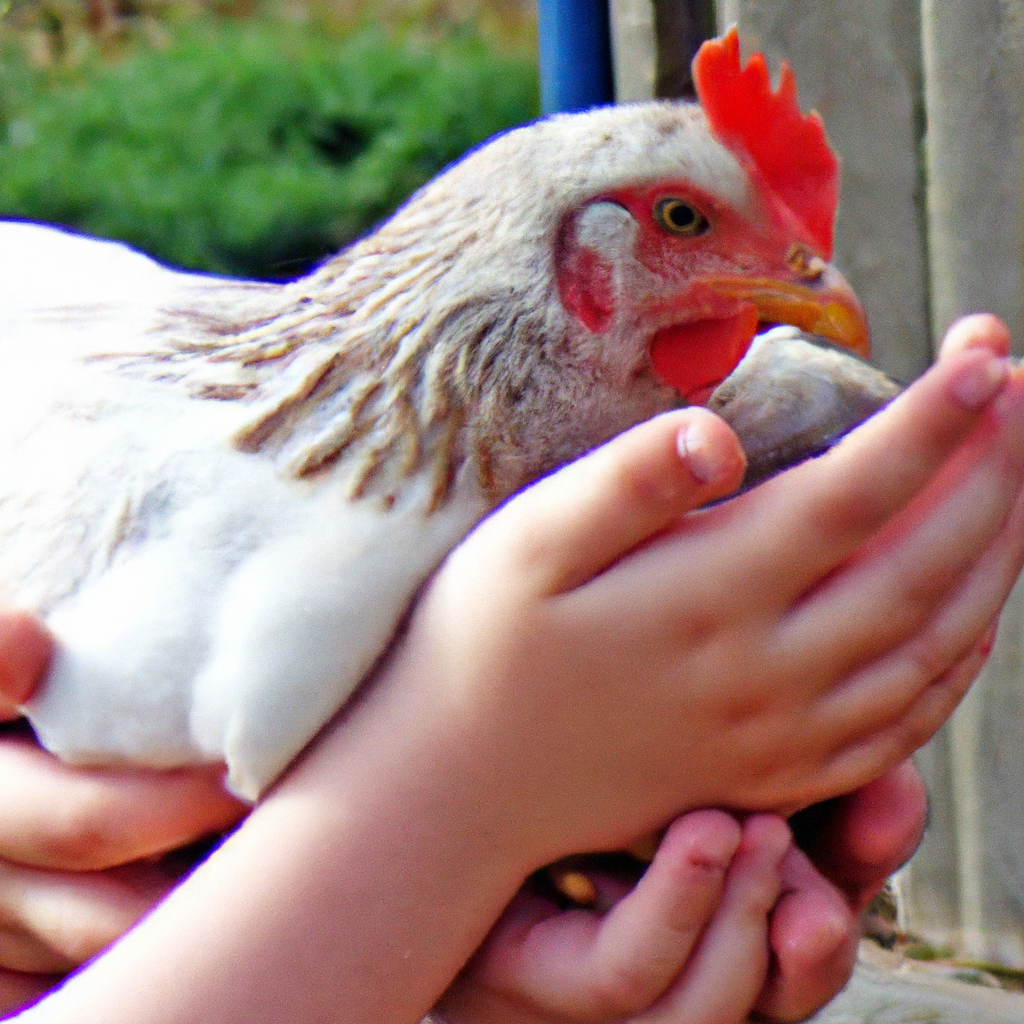
Imagine you’re a curious chicken enthusiast, eager to learn the secrets to handling and taming these feathered friends. Well, look no further! In this article, we will explore the various approaches and techniques that have been proven effective for handling and taming chickens. Whether you’re a beginner or a seasoned chicken whisperer, this guide is here to help you foster a harmonious bond with your flock. So grab your gardening gloves and get ready to discover the best way to handle and tame chickens!

Understanding Chicken Behavior and Psychology
The Basics of Chicken Behavior
Understanding chicken behavior is the key to successfully handling and taming these fascinating creatures. Chickens have a hierarchical social structure and are highly social animals. They communicate through vocalizations, body language, and pecking order. It’s important to observe their behavior and understand their natural instincts and needs.
Understanding the Chicken Pecking Order
In a flock of chickens, there is a clear pecking order established. This order determines the hierarchy and dominance among the chickens. It’s essential to understand this pecking order when handling and interacting with your chickens. The dominant chickens will assert their authority by pecking and sometimes bullying the submissive ones. By respecting the pecking order and allowing the chickens to establish their own hierarchy, you can ensure a harmonious flock environment.
The Importance of Socialization
Socialization plays a crucial role in the development and behavior of chickens. Chickens that are properly socialized from an early age are generally more friendly and easier to handle. Regular interaction with humans, other animals, and exposure to various stimuli will help chickens become more comfortable and less skittish. Socialization also helps reduce stress and promotes overall well-being in the flock.
Creating a Safe and Comfortable Environment
Choosing the Right Housing for Chickens
Providing suitable housing for your chickens is vital for their safety and well-being. The coop should be well-constructed, predator-proof, and spacious enough to accommodate the flock comfortably. It should also have nesting boxes and perches to meet their natural needs. Consider the climate and weather conditions in your area when selecting the appropriate housing for your chickens.
Providing Adequate Space and Ventilation
Chickens require sufficient space to move around, stretch their wings, and engage in natural behaviors like dust bathing and foraging. Overcrowding can lead to stress, aggression, and the spreading of diseases. Adequate ventilation is also crucial to maintain a healthy environment and prevent respiratory issues. Ensure proper air circulation in the coop to keep the air fresh and clean for your chickens.
Ensuring Proper Lighting and Temperature
Chickens require a balance of light and darkness to maintain their natural sleep cycles and egg production. Provide a light source for approximately 14-16 hours per day to stimulate egg laying. Temperature regulation is equally important, especially during extreme weather conditions. Monitor and maintain a comfortable temperature range inside the coop to keep your chickens healthy and stress-free.
Implementing Proper Sanitation and Hygiene
Maintaining cleanliness and good hygiene in the chicken coop is essential for the health of your flock. Regularly clean the coop, remove droppings, and ensure adequate drainage to prevent the accumulation of moisture. This will help prevent the growth of bacteria and parasites. Provide clean bedding material regularly and regularly check for signs of pests or diseases.

Feeding and Watering Chickens
Determining the Appropriate Feed
Choosing the right feed for your chickens is crucial for their overall health and productivity. Chickens require a balanced diet that includes grains, proteins, vitamins, and minerals. Depending on their age, breed, and purpose (laying eggs or meat production), specific feed formulations are available. Consult with a poultry nutrition expert or reliable sources to determine the appropriate feed for your flock.
Establishing a Feeding Schedule
Establishing a consistent feeding schedule is important to ensure that your chickens receive the necessary nutrients at the right time. Provide feed in appropriate feeders and regulate the quantity based on the size and needs of your flock. Avoid overfeeding, as it can lead to obesity and other health problems. Additionally, regularly monitor food consumption and adjust the feeding schedule as needed.
Managing Watering Systems for Chickens
Water is a vital component of a chicken’s diet and overall well-being. Ensure a constant supply of clean, fresh water for your flock. Use appropriate waterers that prevent contamination and spillage. Regularly check and clean the waterers to maintain hygiene. During extreme weather conditions, ensure that the water is not frozen or too hot, as this can adversely affect your chickens’ health.
Handling and Approaching Chickens
Gaining Trust through Patience
Building trust and establishing a positive relationship with your chickens requires patience and consistent effort. Spend time near the flock, sitting quietly, and allowing them to observe your presence. Avoid sudden movements or loud noises that may startle them. Over time, they will become accustomed to your presence and feel more comfortable around you.
Proper Techniques for Picking Up Chickens
When handling chickens, it’s important to use proper techniques to ensure their safety and well-being. Approach them calmly, at their eye level, and use a gentle yet firm touch. Support their bodies properly, with one hand under the breastbone and the other securing the wings. Avoid squeezing or gripping too tightly, as this can cause discomfort or injury.
Developing Gentle Interaction with Chickens
Interacting gently with your chickens is essential for building trust and fostering a positive bond. Slowly introduce gentle touches and strokes on their feathers, allowing them to become familiar with your touch. Offer treats or favorite foods as positive reinforcement during these interactions. With time and positive experiences, your chickens will become more comfortable and enjoy your presence.

Training Chickens to Respond to Commands
Using Positive Reinforcement
Training chickens to respond to commands can be a fun and rewarding experience. Positive reinforcement techniques, such as using treats or praise, can motivate them to learn and follow commands. Reward them immediately when they perform the desired behavior correctly. Consistency, repetition, and patience are key to successfully training your chickens.
Teaching Basic Commands like ‘Come’ and ‘Stay’
Start with simple commands like ‘come’ and ‘stay’ when training your chickens. Use a distinct verbal cue and gentle hand gestures to indicate the desired behavior. For ‘come’, call their names in a friendly tone while enticing them with treats or their favorite food. For ‘stay’, use a firm verbal cue and wait for them to remain in place for a short duration. Gradually increase the difficulty of commands as your chickens become more responsive.
Establishing a Routine and Consistency
The Benefits of a Consistent Routine
Chickens thrive on routine and consistency. Establishing a consistent daily routine provides a sense of security and predictability for your flock. Feed them at the same times each day, allow them time to free-range and explore, and maintain a regular sleeping schedule. Consistency helps reduce stress and promotes a peaceful environment.
Incorporating Regular Handling and Socialization
Regular handling and socialization play a vital role in maintaining a friendly and docile flock. Set aside dedicated time each day for handling and interacting with your chickens. Use this time to observe their behavior, check for any health concerns, and reinforce positive interactions. This regular socialization helps strengthen your bond with the chickens and keeps them comfortable with human presence.
Maintaining a Stable Environment
A stable environment is essential for the well-being of your chickens. Minimize sudden changes or disruptions that may cause stress. Avoid introducing new chickens into the flock without proper quarantine and integration routines. Monitor the coop for temperature and ventilation consistency, and address any issues promptly. Maintaining a stable environment promotes a calm and contented flock.

Recognizing and Addressing Aggressive Behavior
Identifying Signs of Aggression
Aggressive behavior among chickens can occur due to various factors such as territorial disputes, stress, or resource competition. Common signs of aggression include pecking, chasing, feather pulling, and loud vocalizations. It’s crucial to identify these signs early on and intervene to prevent injuries or escalating aggression within the flock.
Implementing Strategies for Dealing with Aggression
If aggressive behavior is observed, several strategies can be implemented to address the issue. Providing ample space and resources can reduce competition and aggression. Separating aggressive birds temporarily and reintroducing them after a cooling-off period may help resolve conflicts. Adding visual barriers or rearranging the coop’s layout can also disrupt established hierarchies and mitigate aggression. In severe cases, consulting with a poultry behavior expert or veterinarian may be necessary.
Handling Fearful and Skittish Chickens
Gradual Desensitization Techniques
Fearful or skittish chickens require patience and gradual desensitization to build trust. Start by sitting quietly near the flock at a distance that doesn’t cause them distress. Slowly shorten the distance and observe how they respond. Once they become accustomed to your presence, try offering treats or favorite foods by hand. Over time, they will associate your presence with positive experiences and become less fearful.
Creating Positive Associations
Creating positive associations with specific situations or objects can help fearful chickens overcome their anxieties. For example, associate feeding time with calm and relaxing music to create a soothing environment. Introduce new objects or changes to the coop gradually, allowing the chickens to investigate and explore at their own pace. Positive associations can help them feel more comfortable and less fearful in unfamiliar situations.
Building Trust with Fearful Chickens
Building trust with fearful chickens requires patience, consistency, and gentle handling. Avoid sudden movements, loud noises, or approaching them from unexpected angles. Spend time with them regularly, allowing them to observe and become familiar with your presence. Offer treats or favorite foods from your hand, giving them the choice to approach at their own pace. With time and positive experiences, they will begin to trust and feel more secure around you.
Using Specialized Handling Equipment
In some cases, fearful chickens may benefit from specialized handling equipment, such as chicken saddles or calming wraps. These tools can provide an additional layer of comfort and security, reducing anxiety during handling or stressful situations. Always ensure that the equipment is properly fitted and does not cause any discomfort or restriction of movement.
Dealing with Specific Handling Challenges
Handling Roosters
Handling roosters requires extra caution due to their natural territorial and protective instincts. Approach them calmly and confidently, using assertive yet gentle handling techniques. Keep a safe distance from their beak and spurs, which can cause injury. If necessary, use a barrier or a long stick to redirect their attention and establish boundaries. Seek advice from experienced chicken keepers or professionals on safe methods for handling roosters.
Managing Broody Hens
Broody hens may exhibit protective behavior and become aggressive when approached or handled. To safely handle broody hens, it’s best to wait until they calm down or exit the nesting area on their own. Use distraction techniques, such as offering food or gently spraying water, to redirect their attention. If necessary, consider providing a separate area for broody hens to nest and hatch their eggs, reducing territorial behavior.
Dealing with Injured Chickens
Injuries can occur in any flock, and it’s important to handle injured chickens with care and seek appropriate medical attention if necessary. Use gentle handling techniques and avoid putting pressure on the injured area. Isolate the injured chicken from the rest of the flock to prevent further harm. Consult a veterinarian or poultry specialist for proper diagnosis and treatment of injuries.
Approaching New or Feral Chickens
Introducing new or feral chickens to an existing flock requires careful handling and integration. Isolate new birds in a separate area initially, allowing them to acclimate to their surroundings and the presence of other chickens. Gradually introduce them to the existing flock in a controlled and supervised manner. Provide plenty of space, resources, and socialization opportunities to minimize aggression and promote a smooth integration process.
Additional Tips and Considerations
The Importance of Respect and Gentle Handling
Respect and gentle handling are paramount when interacting with chickens. Treat them with kindness and consider their well-being at all times. Avoid rough handling, grabbing, or excessive force, as this can cause distress and injury. By showing respect and handling them gently, you create a positive environment and promote trust and cooperation.
Avoiding Excessive Stress
Stress can have detrimental effects on chickens’ health and behavior. Avoid excessive handling, loud noises, sudden changes, and overcrowding, as these can cause stress in your flock. Provide a calm and stable environment with ample space, resources, and socialization opportunities. Minimize disturbances and create a peaceful atmosphere for your chickens to thrive.
Monitoring and Assessing Chicken Behavior
Regularly monitor and assess your chickens’ behavior to identify any changes or potential issues. Observe their interactions, eating habits, vocalizations, and overall demeanor. Any sudden changes in behavior may indicate underlying health concerns or stressors. By staying vigilant and proactive, you can address any issues promptly and ensure the well-being of your flock.
Seeking Professional Help if Needed
If you encounter persistent behavioral challenges or concerns with your chickens, don’t hesitate to seek professional help. Poultry behavior experts, veterinarians, or experienced chicken keepers can provide valuable guidance and advice specific to your situation. They can help assess and address any complex behavioral issues, ensuring the best possible outcomes for your flock.







